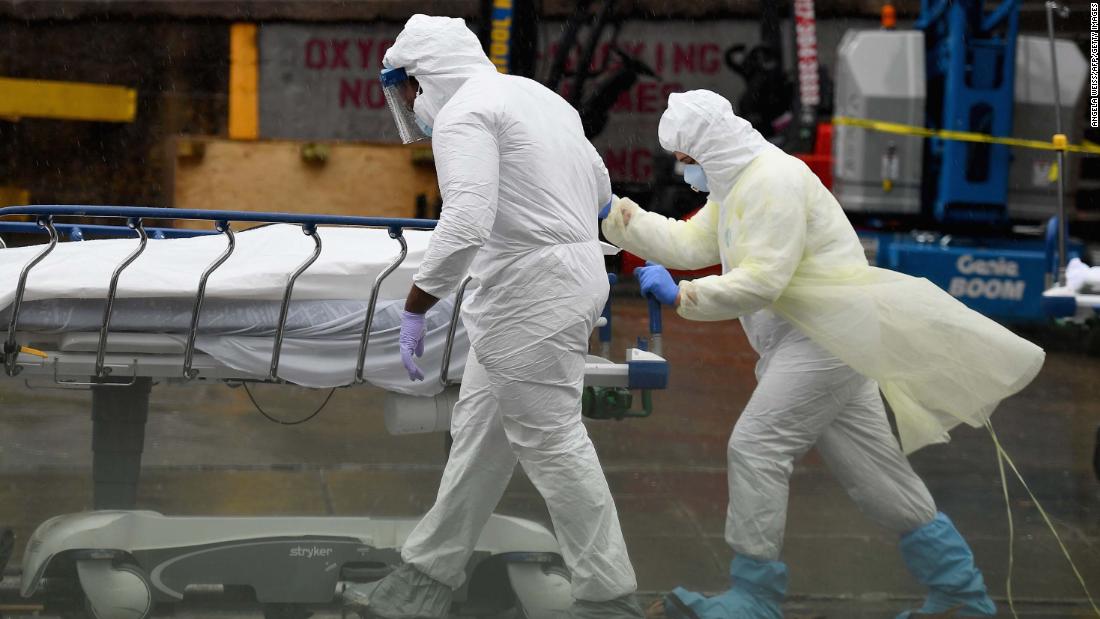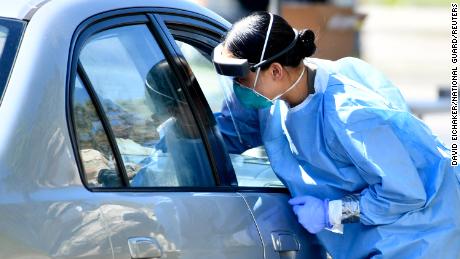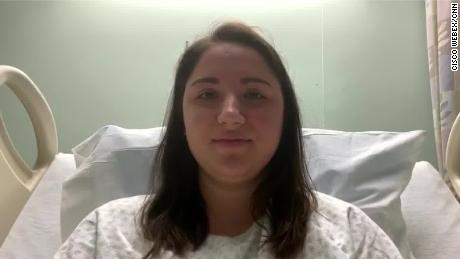Two Texas counties are sharing a refrigerated trailer to store bodies because morgues are full
Thirty-nine states reported an increase in the number of new cases from the week before. California, Florida, Arizona and Texas have become the states to watch as surging coronavirus cases lead to a shortage of hospital beds.
In Arizona’s Maricopa County, which has the most Covid-19 cases in the state, the medical examiner’s office has ordered four portable coolers with additional ones expected in the coming days, said Fields Moseley, the county spokesman. The medical examiner’s office morgue had a total of 156 deceased people — with a surge capacity of just over 200, Moseley said Wednesday.
“Because we hit that surge capacity, multiple phone calls were made to funeral homes all over the county to try to assess their ability to make sure they were taking bodies in a timely fashion,” Moseley said.
“I’m pleading with everybody in our neck of the woods, help us do your part, people’s lives are at stake — not just the people getting sick, but doctors, nurses working to the bone, EMS personnel, transporting people,” Cameron County Judge Eddie Treviño Jr. told CNN affiliate KVEO.
Officials look for options as hospitals fill up
As infections go up, officials nationwide are rushing to issue restrictions all over again.
Gov. Brian Kemp extended Georgia’s emergency coronavirus restrictions and said while people are “strongly encouraged” to wear face coverings — they’re not required. The order, which expires July 31, limits public gatherings to 50 people and mandates social distancing.
But his order also prevents local governments from implementing stricter rules than the state’s, including requiring face masks.
The state reported 417 additional hospitalizations — nearly double Tuesday’s total — and is turning a large convention center in downtown Atlanta into a potential overflow hospital.
California — the country’s most populous state — set two more records Wednesday with highs for hospitalizations and ICU admissions.
The state announced 11,126 new cases, with a total of 6,786 Covid-19 positive hospital patients and 1,907 patients in the ICU. And in Los Angeles County, the public health director warned another stay-at-home order is likely.
“We can’t take anything off the table — there’s absolutely no certainty of what exactly is going to happen next,” Dr. Barbara Ferrer said.
California met its goal to have 10,000 contact tracers statewide by July 1, but Health and Human Services Agency Secretary Dr. Mark Ghaly said it’s not enough to handle the onslaught of coronavirus cases.
“We did not build the first contact tracing program on this level of transmission,” Dr. Ghaly said. “Local and states across the nation have recognized the need to be targeted with some of our contact tracing at this moment in time.”
In South Texas, hospitals in Laredo are full and the federal government is converting a hotel into a health care facility.
Arizona health officials announced they’re bringing nearly 600 critical care and medical-surgical nurses from out of state to help as they enhance their internal surge plans to fill staffing gaps.
“Covid-19 hospitalizations in Arizona have increased with hospitals reporting nearly 3,500 inpatients and more than 900 patients in their intensive care units,” the Arizona Department of Health Services said in a statement.
Public health experts say the end of the pandemic remains out of sight, and several states took steps to mandate the wearing of masks.
Alabama and Montana said they are required in public. In Montana, face coverings are mandatory in certain indoor group settings where more than 50 people gather and social distancing is not possible. More than 30 states now have mandates on face coverings in public.
And in Oklahoma, Gov. Kevin Stitt said he’s tested positive for Covid-19 the same day the state reported a record high number of new cases.
Stitt attended President Donald Trump’s campaign rally in Tulsa last month and was spotted in the crowd without a mask. But based on contact tracing, the state’s health officials said he did not contract coronavirus at the rally.
There were 22,813 total cases in the state, up 1,075 from Tuesday, health officials said. At least 561 people are hospitalized due to the virus.

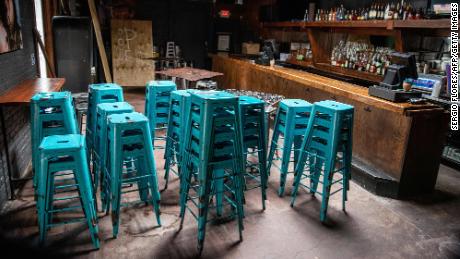
Chairs sit stacked inside a closed bar in Austin, Texas.
Governor touts questionable research
Hit hard by a surge in coronavirus cases, Florida Gov. Ron DeSantis applauded positive results from antibody testing, calling it a “good sign.” But scientists disagree.
Antibody tests determine whether a person had Covid-19 in the past, after the infection’s cleared. “That creates resistance in terms of the ability for the disease to spread,” Republican DeSantis said at a press conference.
However, researchers including the World Health Organization have repeatedly said there’s no evidence to show that prior infection and developing antibodies make someone immune to future infection.
Last week, a Spain government study suggested that coronavirus antibodies wane after a few weeks. A smaller British study released prior to peer review suggests antibody response may start to decline within a month.
And the Centers for Disease Control and Prevention has echoed a similar sentiment. “We do not know how much protection the antibodies may provide or how long this protection may last,” it says on its website.

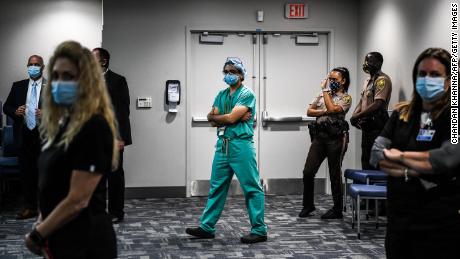
Dr. David de la Zerda (C) listens to the governor of Florida during a press conference to address the rise of coronavirus cases in the state.
Higher death toll expected
The model from the Institute for Health Metrics and Evaluation at the University of Washington is projecting 224,000 people will die from the virus by November 1 — an increase of almost 16,000 from the week before.
That jump is due to skyrocketing cases around the country, particularly in Florida, Texas, Arizona, California, Louisiana, Kentucky, Mississippi, Nevada, New Mexico, South Carolina, Tennessee and Utah, said Dr. Chris Murray, chair of the IHME.
CNN’s Joe Sutton, Jon Passantino, Sarah Moon, Jennifer Henderson and Maggie Fox contributed to this report.
![]()


